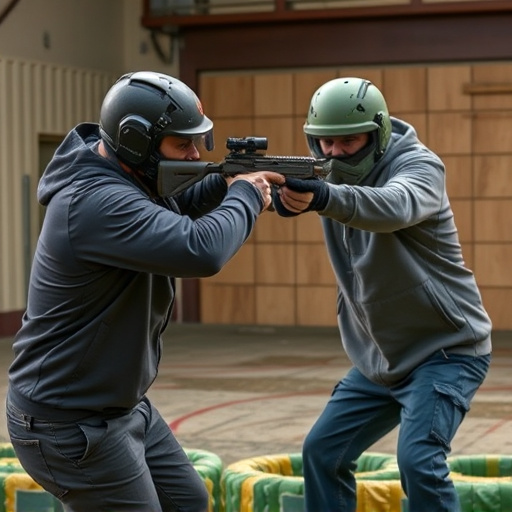Understanding state laws is crucial for civilian stun gun ownership in the US, as regulations vary widely from one state to another, differing significantly from professional security guard stun guns that often face stricter rules due to their use by trained professionals. Each state has unique requirements, including permit-free carry or mandatory licensing, and restricts stun device type, voltage, and capacity for civilian safety. Staying informed ensures compliance and empowers wise security decisions. Professional security guards require special licenses or permits, adhere to strict eligibility criteria, and complete specialized training for legal stun gun ownership and use, promoting public safety.
“In today’s world, the discussion around civilian stun gun ownership and its regulation has gained significant traction. This article provides a comprehensive guide to understanding state laws regarding stun gun possession, with a specific focus on the requirements for professional security guard stun guns. We explore licensing criteria, eligibility, and the legal implications of unregulated stun gun acquisition. By delving into the varying stun gun laws across different states, readers can gain valuable insights into this increasingly relevant topic.”
- Understanding State Laws Regulating Stun Gun Ownership
- Licensing Requirements for Professional Security Guard Stun Guns
- Eligibility Criteria: Who Can Own a Stun Gun?
- Legal Implications of Unregulated Stun Gun Possession
- A Comprehensive Look at Stun Gun Laws in Different States
Understanding State Laws Regulating Stun Gun Ownership
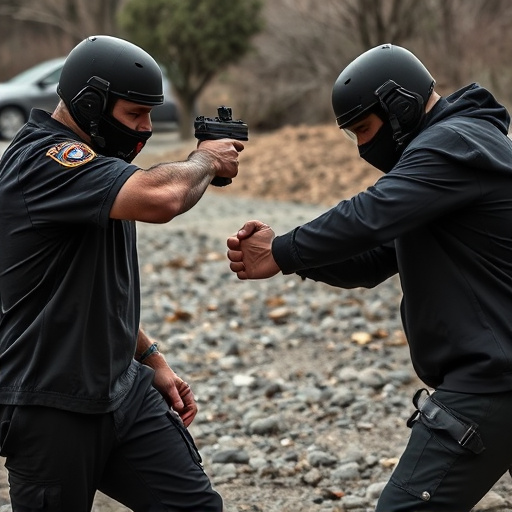
Understanding State Laws Regulating Stun Gun Ownership
In the United States, the legal landscape surrounding civilian stun gun ownership varies significantly from state to state. This is in contrast to professional security guard stun guns, which often have more stringent regulations due to their use in regulated professions. When considering the purchase of a stun device for personal protection, it’s crucial to familiarize yourself with your state’s specific laws and requirements. Some states allow open carry or concealed carry of stun guns without a permit, while others mandate specific licensing or registration procedures.
Certain states may also have restrictions on the type, voltage, or capacity of stun devices permitted for civilian use. These regulations are designed to balance personal safety and self-defense needs with public safety concerns. Staying informed about these laws not only ensures compliance but also empowers individuals to make informed decisions about their security without inadvertently breaking any rules.
Licensing Requirements for Professional Security Guard Stun Guns
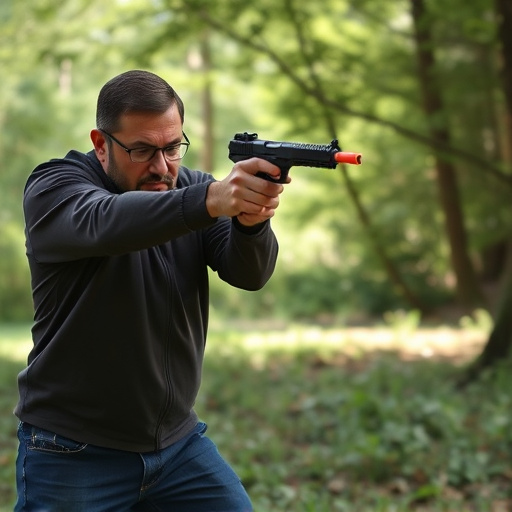
In many states, individuals seeking to carry and use professional security guard stun guns must obtain a special license or permit. This requirement ensures that only qualified and trained personnel are authorized to deploy such devices for security purposes. Licensing typically involves passing a background check, completing a training course specifically designed for stun gun usage, and demonstrating proficiency through practical assessments. The process aims to uphold public safety by ensuring guards are competent in handling these tools responsibly.
State laws vary regarding the specific licensing criteria, including the duration of validity, renewal procedures, and any additional qualifications needed. Some states might also mandate regular refresher courses to keep guard skills sharp and up-to-date with evolving best practices. Understanding and adhering to these licensing requirements are essential steps for anyone looking to legally carry professional security guard stun guns.
Eligibility Criteria: Who Can Own a Stun Gun?
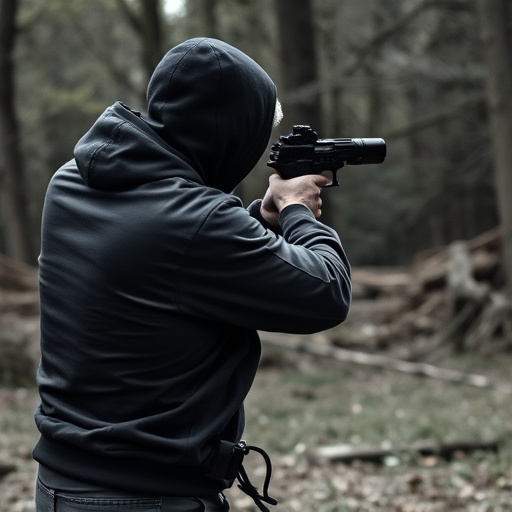
In many states, the eligibility criteria for owning a stun gun, or taser, are relatively stringent, with a focus on ensuring responsible use and public safety. Typically, individuals who wish to possess a stun device must be over a certain age, usually 21 or 25 years old, depending on local laws. They must also pass a background check, including verification of their identity and criminal history. This process is designed to prevent those with a history of violence or mental health issues from accessing such weapons.
Professional security guards are often exempt from certain ownership restrictions due to the nature of their work. Many states allow licensed security professionals to carry stun guns for self-defense while on duty, provided they meet specific training requirements. This includes completing specialized training courses that educate them on the safe use and handling of tasers, as well as relevant state laws governing their deployment.
Legal Implications of Unregulated Stun Gun Possession
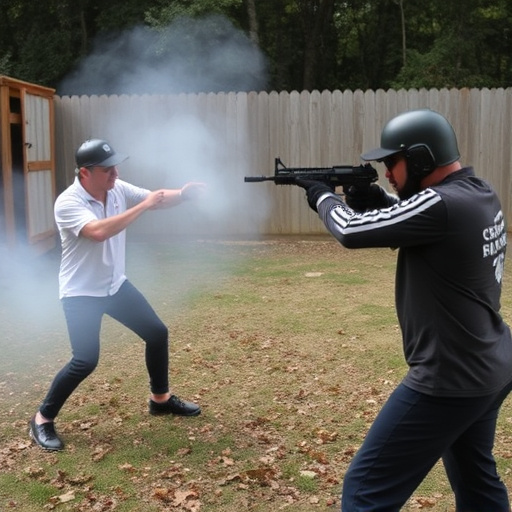
In many jurisdictions, the possession of stun guns, also known as taser weapons, by civilians is a regulated matter due to their potential for harm. However, some states have laws that allow for unregulated ownership of stun guns, particularly those designed for personal protection by professional security guards. This gap in regulation can lead to legal implications and complications.
When stun guns are not subject to strict controls, it becomes challenging to ensure safe handling and responsible use. Unregulated possession may result in increased risks of misuse or accidental discharge, which could potentially harm bystanders or cause excessive force during self-defense scenarios. Moreover, it complicates law enforcement efforts to distinguish between legal self-defense tools and illicit weapons, as the lack of oversight makes it harder to track and regulate stun gun ownership among civilians.
A Comprehensive Look at Stun Gun Laws in Different States
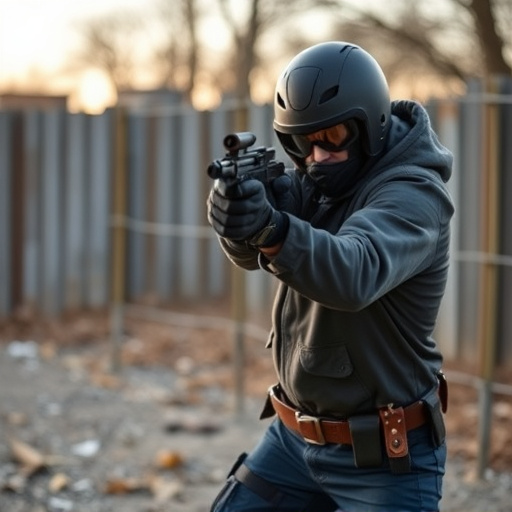
In the United States, the regulation of stun guns, also known as Tasers, varies significantly from state to state. This creates a patchwork of laws and requirements that potential buyers, including professional security guards, must navigate. Some states have relatively liberal rules, allowing qualified individuals to carry stun guns openly or concealed with minimal restrictions. These permissive regulations make it easier for security professionals to access these tools for self-defense and crowd control in diverse environments.
On the other hand, numerous states have stringent guidelines, imposing strict age limits, mandatory training, and waiting periods before one can legally purchase a stun gun. Additionally, some jurisdictions restrict the type of stun guns allowed, focusing on lower-voltage devices to differentiate them from lethal force tools. These comprehensive laws are designed to ensure responsible ownership while accounting for public safety concerns. Professional security guards looking to obtain stun guns must carefully study their state’s specific requirements, as they can vary widely and significantly impact accessibility.
In conclusion, understanding and adhering to state laws regarding civilian stun gun ownership, including those for professional security guard stun guns, is crucial. Each state has unique requirements and regulations that vary greatly, from strict licensing mandates to permissive open carry policies. Knowing your rights and responsibilities as a stun gun owner is essential to ensure legal compliance and personal safety. Stay informed about your state’s specific laws to make informed decisions regarding stun gun acquisition and use.
